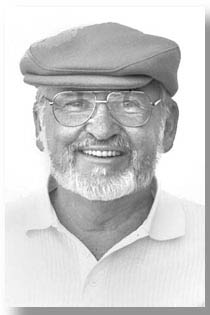Small solutions to the energy problem
I was watching a panel discussion on the energy problem and how it might be resolved. This panel had big (i.e. important) people on it, (including an Assist Secretary of Energy), and was discussing big solutions that would cost big money and require big legislative approvals.
Let me diverge here for an anecdote.
If you were to have a traffic congestion problem, the recommended action would be determined by the kind of expert you hired to develop a solution. A Highway Engineer would recommend additional lanes. A Transportation Planner would suggest mass transit. A Sociologist would point to developing car pools. And a Land Use Planner would recommend locating housing close to the jobs.
Each would be right as viewed from the expertise of his profession, but you could have any of four different solutions depending on who you selected. Remember, it’s important to understand an expert’s bias or focus before selecting him.
In the instance of the energy panel above, all the participants represented important (big picture) players in energy industries, (including alternative and renewable sources) and government. It might be expected that they would all suggest large scale solutions. And, they did.
But imagine what a different panel might recommend. A panel of knowledgeable amateurs might have recommended residential rooftop units tied into individual property generation alternatives.
Sounds good but it might be more difficult to implement than building a single, big one mega generator. Or would it?
Let’s go back to our hypothetical traffic congestion problem.
A constant frustration among transportation experts is the waste involved in people purchasing 4000 pound vehicles to transport one to five (usually no more than two) people around. These vehicles clog up our roads, burn more fuel per passenger mile than buses or trains, require 300+ square feet of valuable parking space per trip and, in general are inefficient in many ways compared to public transit.
BUT, who’s footing the bill for transit? Mostly John Q. Public as all mass transit has to be subsidized by some form of taxpayer funding. This means a big legislative decision and public approval is required to develop a transit system, especially an effective one.
The auto on the other hand is purchased, maintained and driven by individuals. No legislation is required for him to get funding. No public process is needed for approval of the trip routing. Fuel, maintenance and the vehicle operator are provided by the owner at no cost to the public. No Environmental Impact Report is required for the above.
In a nutshell, while it might be economically inefficient for the individual owner, the public doesn’t shoulder any direct cost for an auto based system. Fuel taxes paid by the vehicle owner pay for road construction and maintenance of the roadway.
However it’s added up, no one has been able to find an acceptable alternative for the auto.
Oops, back to energy.
My case is that in might be better to have an energy policy focusing on individual or small unit power generation (the single auto) than centralized power generation (a rail transit system). A thousand one kilowatt generators might cost more for the same total power than a one megawatt plant, BUT, it might be a quicker solution to the overall problem in the long run.
If the owner pays for it, who, other than himself, cares? Perhaps the best solution might just be for government to encourage individual action and get out of the way.
Thursday, September 23, 2010
Subscribe to:
Post Comments (Atom)




Hi Jack:
ReplyDelete"... If you were to have a traffic congestion problem, the recommended action would be determined by the kind of expert you hired to develop a solution. A Highway Engineer would recommend additional lanes. A Transportation Planner would suggest mass transit. A Sociologist would point to developing car pools. And a Land Use Planner would recommend locating housing close to the jobs.
Each would be right as viewed from the expertise of his profession, but you could have any of four different solutions depending on who you selected. ..."
And all four would be wrong if simple common sense and a Chicago School economist were auditing the discussion.
"We have tried regulation ranging from heavy to central planning. None meaningfully worked. Do we wish to retest the evidence?" - Alan Greenspan in "The Age of Turbulence" and Wikipedia.